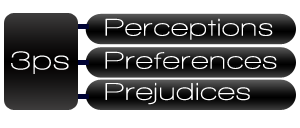How to React to Improper Racial Comments from Coworkers
You are at the social hour of a business function and during the cocktail hour, and another sales professional takes an opportunity to give you, your manager, and the other individuals in your conversation group his “two cents”:
“I believe that this thing with Black athletes in the NBA is sickening. They are selfish, tattooed animals that make money from bouncing a ball and shooting it into a basket.”
You might not even like the NBA, but you immediately feel your temperature increasing because it was an overtly racist statement. Statements like this do happen, and are not only offensive but also very revealing about the one who speaks them.
How should you react? What actions should you take? Are you in jeopardy when you make a complaint? We will examine these issues in this post as you have probably heard comments that are offensive more than once.
Measured Reactions When it Comes from “the Side”
What do you do when these comments come from a coworker? That is why I am referring to it as “the side” as opposed to “from the top” which would be management.
This may sound like a pretty simple question, yet it should be discussed. Above is an example of an overt racist comment. He specifically noted Black NBA athletes in his comments, and made a blanket statement about a league which is approximately 80% to 82% Black with an average annual income of $2.4M. Regardless of his reasoning, he said it. Additionally, whether he was right or wrong, the statement should not have been made.
Statements like this are “baiting” and designed to get you to move to the defense. In some situations they are clear indications that they forgot who was in the audience. I aver that regardless of the reason, our response should be a simple and demonstrative as what I will describe shortly.
I certainly believe that any comment that disparages race, ethnicity, gender, sexual orientation, or religion affiliation should be met with an immediate response. Whether they are veiled or not, you have the right to remove yourself from that conversation, and by doing so you will send a clear signal to the individual and the rest of the group that you are a professional.
At the first utterance, my suggestion is to not legitimize the comment by engaging in conversation or argument. Comments like this are offensive and designed to get a reaction. Having a discussion or even a moment of argument about it gives them what they want. Even if you are incensed, I urge you not to legitimize it, but to take the following actions after the comment:
Think about the comment briefly and if it is racist, or darn close to it then I suggest you state one of the following, or something you have crafted for this type of occasion:
- “I have no desire to discuss this issue”, then exit the conversation.
- “I will not legitimize your comments with discussion or my presence”, then exit the conversation.
- “I am as surprised that you have views like that and even more surprised that you would be insensitive enough to state them. You will excuse me?”
Everyone in the group will know why you exited the conversation. As a matter of fact this will give you a good chance to see how many of those individuals you work, including those you consider friends, have the intestinal fortitude (guts) to do the same thing. These types of comments have no place in a work setting, and you cannot be selective about which ones to listen to, they need to all be met with the same response.
When someone makes comments like this in your presence, you can imagine what they say when you are not present. Remember, you probably have the right to “go off” about the issue. The problem is that you don’t want to give someone the power to be able to “push that button. “ They have shown their ignorance; now your demonstration of the fact that you will not listen to that garbage puts that individual’s action, as well as the actions of others that you work with in the spotlight. Will they listen to these disparaging comments? Will they partake of this type of racism (or sexism, or religious intolerance)?
If It Happens Again…
You must remember that everyone that you work with is not your friend. You should show respect initially, yet that can change if they continually abuse it. Note that if there is a second instance, then a discussion with Human Resources should be the action taken.
Any discussion with HR should be factual and clearly state the your objection to the comments as well as who was present as witness to the comments. This is not “tattling” it is working to correct a wrong. We know that sales people sometimes push the “envelope” in their comments and views. Regardless, this type of scenario is unacceptable. It should be clearly discussed that this is not the first time, and the date and time, and witnesses to the initial comment. If you are truthful about what has happened you should not create any jeopardy for your job in this action.
I have seen jobs endangered, and terminated for comments that disparage racial groups, genders, and other items. Your comfort should come in that you had the courage to speak up because chances are this is not the first time that a disparaging comment was made.
 December 1, 2014
|
Posted by Admin9!
December 1, 2014
|
Posted by Admin9!

 Categories:
Categories:  Tags:
Tags: 


Your Comments